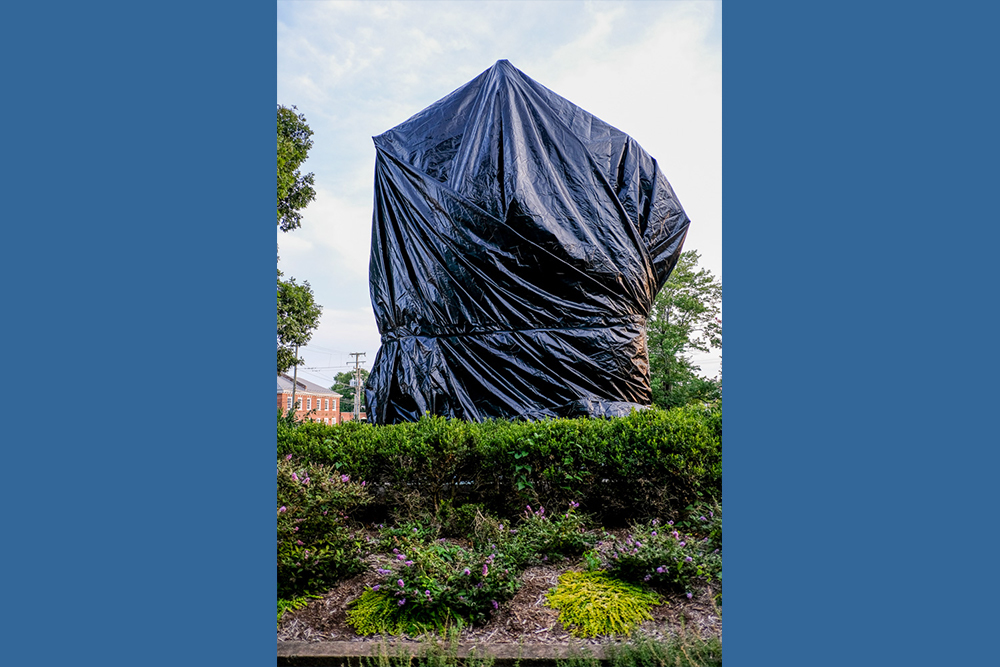The Zehr Institute for Restorative Justice offers “Transforming Historical Harms,” a four-part webinar series in the fall of 2017.
Using case histories from Virginia, the series will highlight narratives that can help historically divided communities explore the past, confront current issues, and move together into a shared future. The series will also focus on how restorative justice approaches can be used to help acknowledge and transform the legacy of slavery and racial injustice in the United States. The series is funded by the Virginia Foundation for the Humanities.
Each 90-minute free webinar will include an interview with an expert on the topic and a related Virginia case study, with a time for questions and answers.
Register for the free webinars here.
Zehr Institute co-directors Dr. Howard Zehr and Dr. Carl Stauffer, professors with the Center for Justice and Peacebuilding (CJP) at Eastern Mennonite University, will host the series.
Transformative Community Conferencing
Wed. Sept. 20 – 4:30-6 p.m. (EST)
Dr. David Anderson Hooker, Kroc Institute for International Peace Studies at the University of Notre Dame
Dr. Hooker will discuss the role and practices of unveiling hidden narratives that support and sustain conflict and those that allow conflicting parties to move forward together. He is the co-author, with Amy Potter Czajkowski, of the Transforming Historical Harms manual. Dr. Hooker’s newly published Little Book of Transformative Community Conferencing (Little Books of Justice and Peacebuilding, 2017) offers a hopeful, accessible approach to dialogue that:
- Names and maps complex conflicts, such as racial tensions, religious divisions, environmental issues, and community development as it narrates simple stories;
- Builds relationships and foundations for trust needed to support long-term community transformation projects; and
- Results in the crafting of hopeful, future-oriented visions of community that can transform relationships, resource allocation, and structures in service of communities’ preferred narratives.
Dr. Hooker will apply the framework to recent incidents in Charlottesville, Virginia, where the city council recently voted to remove a statue of Confederate General Robert E. Lee, and recent rallies by white nationalist groups protesting this decision resulted in death and injuries to counter protesters.
Truth-Telling on Race Relations in the U.S. Context
Wed. Oct. 18 – 4:30-6 p.m. (EST)
Presenter: Dr. Thalia González, visiting researcher, Georgetown University Law Center, and associate professor, Occidental College, Washington D.C.
Dr. González will reflect on the Maine Wabanaki-State Child Welfare Truth & Reconciliation Commission, which dealt with a situation where native families “suffered unjustly under racially biased policies designed to disrupt community, disband traditional family structure and solve ‘the Indian problem’ by assimilating native children into white society.”
The Virginia case study focuses on a February 2016 truth-telling gathering in Richmond, Virginia. Twenty leaders from around the country envisioned and developed the broad outlines of a plan to launch a restorative justice-based truth and reconciliation process in the United States. Subsequent to the Richmond Hill meeting, a mapping exercise gathered specific data about the nature, extent of current truth-telling, racial healing, memorialization and social transformation initiatives across the United States and their connectedness with one another. Next steps will focus on connecting these various efforts.
Coming to the Table
Wed. Nov. 15 – 4:30-6 p.m. (EST)
Presenters: Jodie Geddes, vice president, Coming to the Table, and Tom DeWolf, executive director, Coming to the Table
This webinar will focus on Coming to the Table (CTTT), its history and where it is headed. How is CTTT as a framework and model working to improve race relations in this country? How can restorative justice approaches be used to help acknowledge and transform the legacy of slavery and racial injustice in the United States?
Stories of several Virginia members of CTTT, with history in the Culpepper and Monticello communities, will be discussed. Jodie will talk about her work on mapping the truth-telling field (see previous webinar case study).
Launched in January 2006 at CJP, CTTT provides leadership, resources, and a supportive environment for all who wish to acknowledge and heal wounds from racism that is rooted in the United States’ history of slavery.
Jodie Geddes, a recent graduate of CJP’s master’s degree in conflict transformation program, now works at Restorative Justice for Oakland Youth. Tom DeWolf is the author of two books: Inheriting the Trade, and Gather at the Table: The Healing Journey of a Daughter of Slavery and a Son of the Slave Trade (both from Beacon Press). He is also featured in the Emmy-nominated documentary Traces of the Trade: A Story from the Deep North.
Dealing with the Past from a Theological/Faith-based Practice
Dec. 13th- 4:30-6 p.m. (EST)
Presenters: Linda Armstrong, chair of the History and Reconciliation Initiative at St. Paul’s Episcopal Church, Richmond, Virginia, and Barbara Holley, retired nurse and church member.
The webinar will focus on the theological basis for dealing with the unfinished business of the past and highlighting a more hopeful way forward, highlighting the work of St. Paul’s Episcopal Church, Richmond, Virginia, which is engaged in a four-year journey to come to terms with its history and close connections with Confederate imagery and symbols in the church. The church’s History & Reconciliation Initiative (HRI), the result of community discernment and discussion, “is a commitment to understand the past role of race, slavery, and segregation in the history of the church and city, as well as the legacies of ongoing discrimination and racial inequities,” according to the church website.
More about The Zehr Institute for Restorative Justice
Founded at Eastern Mennonite University’s Center for Justice and Peacebuilding in 2012, the Zehr Institute for Restorative Justice facilitates and encourages dialogue and networking within the restorative justice. The Zehr Institute is co-directed by Dr. Howard Zehr and Dr. Carl Stauffer. Center for Justice and Peacebuilding professor Dr. Johonna Turner serves as faculty associate for the Zehr Institute.
